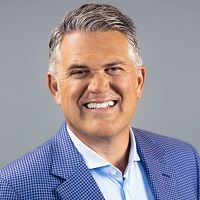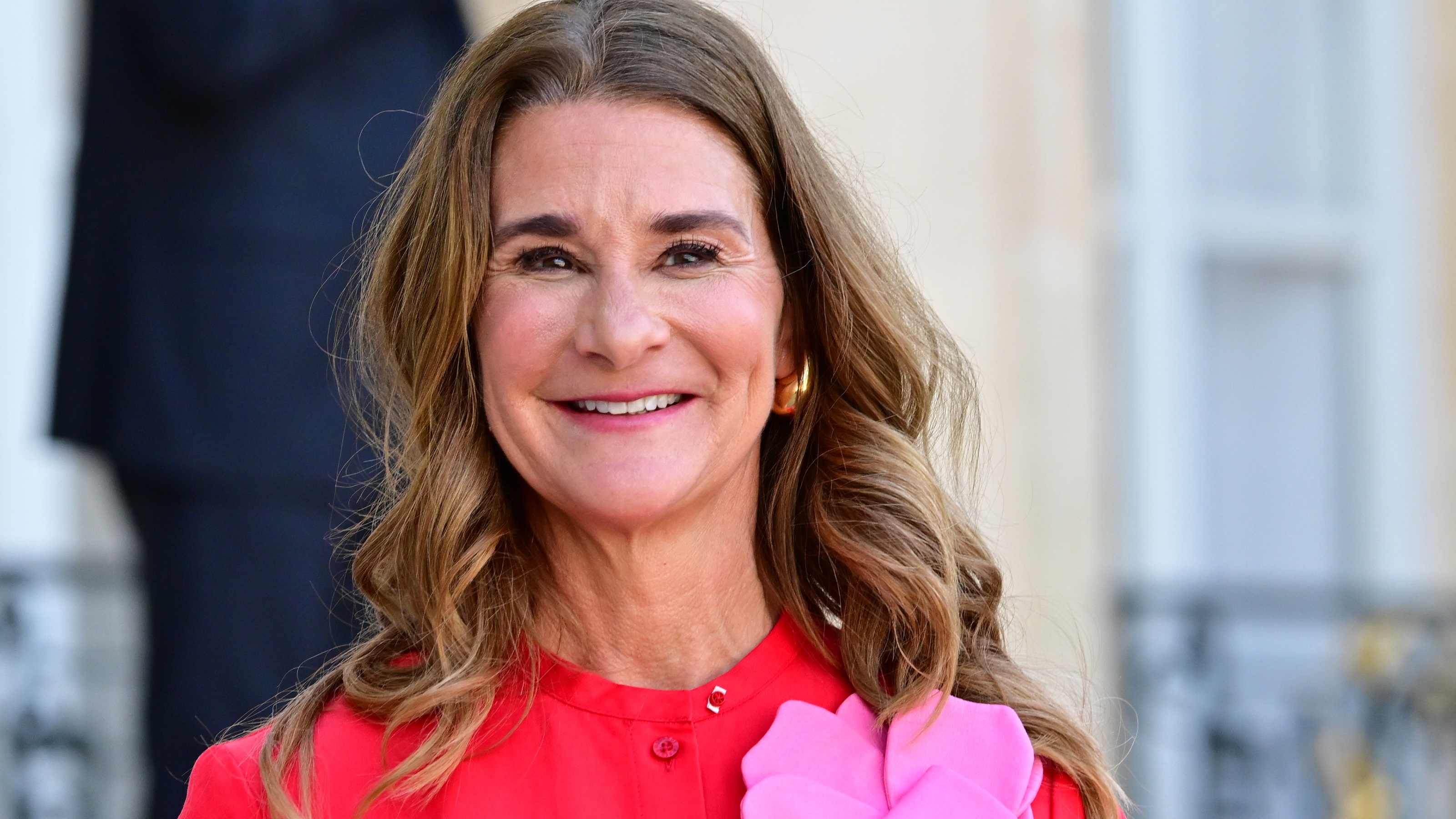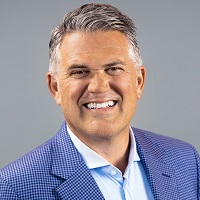Melinda French Gates Models Three Strong Lessons for Philanthropists
Gates' willingness to pivot and her focus on her charitable giving vision provide an excellent example for current and future philanthropists.


Profit and prosper with the best of Kiplinger's advice on investing, taxes, retirement, personal finance and much more. Delivered daily. Enter your email in the box and click Sign Me Up.
You are now subscribed
Your newsletter sign-up was successful
Want to add more newsletters?

Delivered daily
Kiplinger Today
Profit and prosper with the best of Kiplinger's advice on investing, taxes, retirement, personal finance and much more delivered daily. Smart money moves start here.

Sent five days a week
Kiplinger A Step Ahead
Get practical help to make better financial decisions in your everyday life, from spending to savings on top deals.

Delivered daily
Kiplinger Closing Bell
Get today's biggest financial and investing headlines delivered to your inbox every day the U.S. stock market is open.

Sent twice a week
Kiplinger Adviser Intel
Financial pros across the country share best practices and fresh tactics to preserve and grow your wealth.

Delivered weekly
Kiplinger Tax Tips
Trim your federal and state tax bills with practical tax-planning and tax-cutting strategies.

Sent twice a week
Kiplinger Retirement Tips
Your twice-a-week guide to planning and enjoying a financially secure and richly rewarding retirement

Sent bimonthly.
Kiplinger Adviser Angle
Insights for advisers, wealth managers and other financial professionals.

Sent twice a week
Kiplinger Investing Weekly
Your twice-a-week roundup of promising stocks, funds, companies and industries you should consider, ones you should avoid, and why.

Sent weekly for six weeks
Kiplinger Invest for Retirement
Your step-by-step six-part series on how to invest for retirement, from devising a successful strategy to exactly which investments to choose.
Philanthropist Melinda French Gates recently made headlines when she announced she was formally stepping down from the Bill and Melinda Gates Foundation. Notably, it was reported by NBC News that she will retain “$12.5 billion that she plans to put toward her ongoing work supporting women and families.”
With (perhaps) a clearer path ahead and a resolve to be hyper-focused on her core areas of support, Gates’ announcement provides strong lessons for current and future philanthropists about the importance of having a plan, being willing to pivot and always aligning your vision with your funding abilities.
Her success affirms that with a plan, a focus area and the knowledge of which partnerships to pursue (or leave), both current and future philanthropists can greatly improve their impact.
From just $107.88 $24.99 for Kiplinger Personal Finance
Become a smarter, better informed investor. Subscribe from just $107.88 $24.99, plus get up to 4 Special Issues

Sign up for Kiplinger’s Free Newsletters
Profit and prosper with the best of expert advice on investing, taxes, retirement, personal finance and more - straight to your e-mail.
Profit and prosper with the best of expert advice - straight to your e-mail.
Lesson #1: Always have a plan.
A philanthropic fund can be utilized most effectively when there is an alignment with values, passions and interests. Philanthropic planning allows individuals and organizations to make a thoughtful and strategic approach to charitable giving and to help maximize their donations' impact.
This includes developing an investment policy statement, asset allocation and portfolio construction, fiduciary compliance and oversight, risk management, family legacy planning and customized reporting and analysis for your investment committees.
Starting with a well-thought-out plan helps to ensure that resources are directed toward causes that resonate deeply with you, increasing the potential for meaningful impact. Having this plan in place helps you stay on target for your charitable giving goals now and in the future.
Indeed, as a leader who has centered her work on improving the lives of women and children, Gates has been steadfast in her commitment to supporting the next generation of female leaders. As she began to identify the severe lack of funding for women founders, she launched Pivotal Ventures to invest in early-stage companies led by women.
Lesson #2: Autonomy can be a superpower.
Sometimes, partnerships that start off on the strongest footing will no longer serve you. In the Gates Foundation example, this could be the dissolution of marriage between two founders, or more commonly, breaking ties with a trusted adviser. Indeed, the Gates Foundation made an incredible impact in its decades of existence, but the divorce of its founders certainly shifted the relationship and communication style.
Philanthropists must be flexible and willing to pivot when necessary to ensure their contributions have the greatest impact. According to Philanthropy Miami, “Flexibility goes beyond mere survival — it enables nonprofits to thrive in times of change. By embracing a mindset of flexible leadership, nonprofit leaders can foster a culture of resilience and innovation within their organizations.”
While seeking professional advice and collaborating is essential, philanthropists should not be afraid to go it alone if the original plans or partners aren’t aligned with their goals. This autonomy can empower philanthropists to pursue their vision more effectively and innovatively, attracting new partners as their goals and values evolve.
Lesson #3: Double down to effect the greatest change.
Over the past 20 years, the Gates Foundation has donated $53.8 billion to fight poverty, disease and inequity worldwide. While they have certainly made tremendous strides in those areas, these issues have not yet been eradicated.
Philanthropy is an ongoing endeavor with vast, seemingly endless, amounts of money needed to tackle some of society's biggest challenges. One thing is clear: While easy, micro philanthropy (small sums donated at cash registers or round-up opportunities) will not move the needle.
To effect change, philanthropists must do the deep work to figure out what they love and where they want to help. Open Philanthropy suggests considering the following three factors when evaluating an area to fund:
Importance. How important is this focus area, and how many people are affected?
Neglectedness. How neglected is this focus area?
Tractability. Are there clear ways a funder could contribute and make significant progress?
Gates’ commitment to supporting women and families reflects a concentrated effort to address specific issues that are important to her. By doubling down on these core areas of interest, she exemplifies how focusing on fewer areas can create a more significant and lasting impact compared to spreading resources too thin across numerous smaller initiatives.
It’s clear that in her next chapter, Gates’ impact and influence will continue to grow. By following her model, current and future philanthropists also have a great opportunity to mold a better world in their vision.
ALINE Wealth is a group of investment professionals registered with Hightower Securities, LLC, member FINRA and SIPC, and with Hightower Advisors, LLC, a registered investment advisor with the SEC. Securities are offered through Hightower Securities, LLC; advisory services are offered through Hightower Advisors, LLC.
Third-party links and references are provided solely to share social, cultural and educational information. Any reference in this post to any person, or organization, or activities, products, or services related to such person or organization, or any linkages from this post to the website of another party, do not constitute or imply the endorsement, recommendation, or favoring of ALINE Wealth or Hightower Advisors, LLC, or any of its affiliates, employees or contractors acting on their behalf. Hightower Advisors, LLC, do not guarantee the accuracy or safety of any linked site.
Related Content
- Apple TV+'s 'Loot' Offers Five Lessons for Inheriting Wealth
- Six Charitable Giving Strategies: Feel Good and Cut Your Taxes
- Philanthropy Needs Innovation to Help With Social Problems
- How to Maximize Your Impact With Strategic Philanthropy Tools
- How to Assess the Impact of Your Charitable Giving
Profit and prosper with the best of Kiplinger's advice on investing, taxes, retirement, personal finance and much more. Delivered daily. Enter your email in the box and click Sign Me Up.

Peter J. Klein, CFA®, CAP®, CSRIC®, CRPS®, is the Chief Investment Officer and Founder of ALINE Wealth, a wealth management firm that specializes in providing clients with financial planning advice for every stage of their lives. Along with Peter’s deep financial wisdom, he adds considerable acumen in philanthropy, helping clients navigate family trusts, institutions, and nonprofits.
-
 Quiz: Do You Know How to Avoid the "Medigap Trap?"
Quiz: Do You Know How to Avoid the "Medigap Trap?"Quiz Test your basic knowledge of the "Medigap Trap" in our quick quiz.
-
 5 Top Tax-Efficient Mutual Funds for Smarter Investing
5 Top Tax-Efficient Mutual Funds for Smarter InvestingMutual funds are many things, but "tax-friendly" usually isn't one of them. These are the exceptions.
-
 AI Sparks Existential Crisis for Software Stocks
AI Sparks Existential Crisis for Software StocksThe Kiplinger Letter Fears that SaaS subscription software could be rendered obsolete by artificial intelligence make investors jittery.
-
 Social Security Break-Even Math Is Helpful, But Don't Let It Dictate When You'll File
Social Security Break-Even Math Is Helpful, But Don't Let It Dictate When You'll FileYour Social Security break-even age tells you how long you'd need to live for delaying to pay off, but shouldn't be the sole basis for deciding when to claim.
-
 I'm an Opportunity Zone Pro: This Is How to Deliver Roth-Like Tax-Free Growth (Without Contribution Limits)
I'm an Opportunity Zone Pro: This Is How to Deliver Roth-Like Tax-Free Growth (Without Contribution Limits)Investors who combine Roth IRAs, the gold standard of tax-free savings, with qualified opportunity funds could enjoy decades of tax-free growth.
-
 One of the Most Powerful Wealth-Building Moves a Woman Can Make: A Midcareer Pivot
One of the Most Powerful Wealth-Building Moves a Woman Can Make: A Midcareer PivotIf it feels like you can't sustain what you're doing for the next 20 years, it's time for an honest look at what's draining you and what energizes you.
-
 I'm a Wealth Adviser Obsessed With Mahjong: Here Are 8 Ways It Can Teach Us How to Manage Our Money
I'm a Wealth Adviser Obsessed With Mahjong: Here Are 8 Ways It Can Teach Us How to Manage Our MoneyThis increasingly popular Chinese game can teach us not only how to help manage our money but also how important it is to connect with other people.
-
 Looking for a Financial Book That Won't Put Your Young Adult to Sleep? This One Makes 'Cents'
Looking for a Financial Book That Won't Put Your Young Adult to Sleep? This One Makes 'Cents'"Wealth Your Way" by Cosmo DeStefano offers a highly accessible guide for young adults and their parents on building wealth through simple, consistent habits.
-
 Global Uncertainty Has Investors Running Scared: This Is How Advisers Can Reassure Them
Global Uncertainty Has Investors Running Scared: This Is How Advisers Can Reassure ThemHow can advisers reassure clients nervous about their plans in an increasingly complex and rapidly changing world? This conversational framework provides the key.
-
 I'm a Real Estate Investing Pro: This Is How to Use 1031 Exchanges to Scale Up Your Real Estate Empire
I'm a Real Estate Investing Pro: This Is How to Use 1031 Exchanges to Scale Up Your Real Estate EmpireSmall rental properties can be excellent investments, but you can use 1031 exchanges to transition to commercial real estate for bigger wealth-building.
-
 Should You Jump on the Roth Conversion Bandwagon? A Financial Adviser Weighs In
Should You Jump on the Roth Conversion Bandwagon? A Financial Adviser Weighs InRoth conversions are all the rage, but what works well for one household can cause financial strain for another. This is what you should consider before moving ahead.